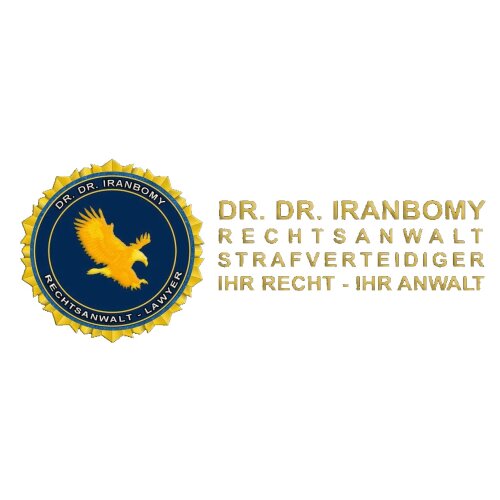Best Corporate Governance Lawyers in Frankfurt am Main
Share your needs with us, get contacted by law firms.
Free. Takes 2 min.
List of the best lawyers in Frankfurt am Main, Germany
About Corporate Governance Law in Frankfurt am Main, Germany
Corporate governance refers to the system of rules, practices, and processes by which a company is directed and controlled. In Frankfurt am Main, Germany's financial capital, corporate governance is influenced by both national legislation and the expectations of global markets. German corporate governance frameworks are considered among the most robust in Europe, with an emphasis on transparency, accountability, and stakeholder involvement. Frankfurt, as a major business hub and home to significant financial institutions, follows not only the German Corporate Governance Code but also integrates best practices suited for multinational operations. Companies in this region are closely monitored by regulatory bodies, and sound governance is not only a legal obligation but also a crucial component for maintaining investor confidence.
Why You May Need a Lawyer
Corporate governance is a complex field subject to frequent legislative changes and high compliance standards. There are several situations in which an individual or organization may require legal counsel, including:
- Establishing governance structures for a new or expanding company
- Advising management or supervisory boards on their legal duties and liabilities
- Assisting with corporate compliance and risk management systems
- Drafting, reviewing, or updating articles of association and bylaws
- Advising on conflicts of interest or breaches of fiduciary duties
- Guiding on shareholder rights, meetings, and disputes
- Assisting during mergers, acquisitions, or restructuring processes
- Representing companies or directors in regulatory investigations or legal disputes
- Handling cross-border governance issues for multinational organizations
- Ensuring compliance with stock exchange and financial market regulations
A qualified lawyer provides valuable assistance in clarifying obligations, mitigating risks, and ensuring robust corporate decision-making.
Local Laws Overview
Corporate governance in Frankfurt am Main is governed primarily by German national law, with some local implications arising from Frankfurt's status as an economic center. Key legal frameworks include:
- German Stock Corporation Act (Aktiengesetz or AktG): Governs the structure and functioning of AG (stock corporations), including board structure, shareholder rights, and disclosure obligations.
- German Limited Liability Companies Act (GmbHG): Regulates the governance of GmbHs (limited liability companies), defining shareholder and management responsibilities.
- German Corporate Governance Code (Deutscher Corporate Governance Kodex): Provides recommendations and suggestions for good and responsible corporate governance, relevant for listed companies but influencing broader practices.
- European Union Regulations: Due to Germany's membership in the EU, EU directives and regulations also impact corporate governance, especially regarding transparency and shareholders’ rights.
- Frankfurt Stock Exchange Rules: Companies listed on the Frankfurt Stock Exchange must also comply with specific listing, disclosure, and governance requirements.
Local authorities in Frankfurt, such as the Chamber of Commerce and the Landgericht Frankfurt am Main, play a role in overseeing corporate registrations and certain regulatory matters.
Frequently Asked Questions
What is the two-tier board system used in Germany, and is it mandatory in Frankfurt am Main?
Yes, German stock corporations must use a two-tier system consisting of a management board (Vorstand) for daily operations and a supervisory board (Aufsichtsrat) for oversight. This model is mandatory for AGs and larger GmbHs, including those in Frankfurt.
Are shareholder agreements legally binding in Germany?
Yes, shareholder agreements are legally binding contracts. However, they must not conflict with the company’s articles of association or mandatory provisions of German corporate law.
What are the legal duties of directors and board members in Frankfurt?
Directors and board members must act in the best interest of the company, exercise due care and diligence, avoid conflicts of interest, and ensure compliance with laws and internal policies. Breaches can lead to personal liability.
How are conflicts of interest handled under German corporate governance laws?
Board members are required to disclose conflicts of interest immediately and may need to abstain from related decisions. Failure to do so can result in liability and potential removal from office.
Do private companies have to comply with the German Corporate Governance Code?
The Code is primarily directed at listed (public) companies, but its principles are often adopted as best practice by large private companies in Frankfurt.
What is the role of works councils in corporate governance?
Works councils represent employees and have a significant say in company matters, especially regarding working conditions. Co-determination laws may require employee representation on supervisory boards in larger companies.
Can foreign nationals serve as directors or board members in Frankfurt?
Yes, there are generally no restrictions on foreign nationals serving as directors or board members of German companies, provided they meet legal requirements related to age, legal capacity, and sometimes residency.
How often must annual general meetings (AGMs) be held?
Public companies must hold an AGM at least once per calendar year. Private companies must also convene meetings in line with their articles of association and German law.
What are the disclosure and reporting requirements for companies in Frankfurt?
All companies must file annual financial statements. Public companies and those listed on the Frankfurt Stock Exchange have further obligations for quarterly reports, ad hoc announcements, and disclosure of significant shareholdings.
How are breaches of corporate governance investigated or enforced in Frankfurt?
Regulatory bodies such as BaFin (Federal Financial Supervisory Authority) and, to a lesser extent, local courts and stock exchanges investigate breaches. Companies may also conduct internal investigations, and whistleblowing mechanisms are strongly encouraged.
Additional Resources
If you require further information or support on corporate governance in Frankfurt am Main, the following resources may be helpful:
- German Corporate Governance Code Commission - Provides guidance and updates on the Code applicable in Germany
- BaFin (Federal Financial Supervisory Authority) - Oversees compliance in the financial sector
- Frankfurt Chamber of Commerce and Industry (IHK Frankfurt) - Assists with corporate registrations, information, and business development
- Frankfurt Stock Exchange - Issues governance guidance and enforces its own listing rules
- Local law firms and legal advisors - Specialize in corporate and compliance law
Next Steps
If you are seeking legal advice on corporate governance matters in Frankfurt am Main, consider the following steps:
- Identify your specific legal needs, such as structuring your company, resolving a dispute, or ensuring compliance.
- Gather relevant company documents, including articles of association, shareholder agreements, and recent correspondence or filings.
- Consult a qualified lawyer with experience in German corporate law and knowledge of local practices in Frankfurt.
- Prepare a list of questions or concerns to discuss during your consultation.
- Ask about the lawyer’s experience, approach to problem solving, and fee structure before proceeding.
- Follow through with recommended steps to protect your company’s interests and stay compliant with statutory requirements.
Sound legal advice can safeguard your business, ensure good governance, and help you navigate the unique environment of Frankfurt am Main.
Lawzana helps you find the best lawyers and law firms in Frankfurt am Main through a curated and pre-screened list of qualified legal professionals. Our platform offers rankings and detailed profiles of attorneys and law firms, allowing you to compare based on practice areas, including Corporate Governance, experience, and client feedback.
Each profile includes a description of the firm's areas of practice, client reviews, team members and partners, year of establishment, spoken languages, office locations, contact information, social media presence, and any published articles or resources. Most firms on our platform speak English and are experienced in both local and international legal matters.
Get a quote from top-rated law firms in Frankfurt am Main, Germany — quickly, securely, and without unnecessary hassle.
Disclaimer:
The information provided on this page is for general informational purposes only and does not constitute legal advice. While we strive to ensure the accuracy and relevance of the content, legal information may change over time, and interpretations of the law can vary. You should always consult with a qualified legal professional for advice specific to your situation.
We disclaim all liability for actions taken or not taken based on the content of this page. If you believe any information is incorrect or outdated, please contact us, and we will review and update it where appropriate.














